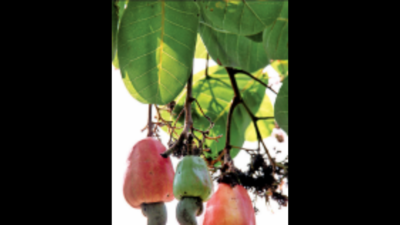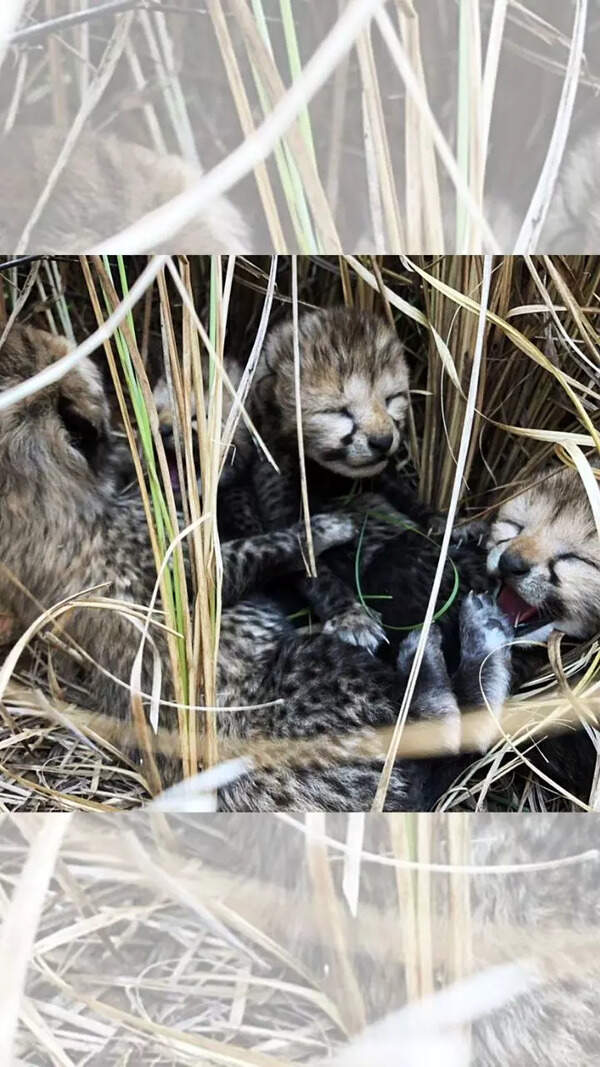Trending Topics
BITS scientists eye cashew apples for energy generation

Representative image
PANAJI: Goan cashew cultivators may soon be able to earn some extra money from discarded cashew apples. The Birla Institute of Technology and Science (BITS) Pilani K K Birla Goa Campus has sent a research proposal to the state government for studying uses of the discarded fruit and its pulp in generating energy as well as in bakery and agriculture applications.
In their proposal to the Goa Energy Development Agency (GEDA), Vivek Rangarajan, Prof S D Manjare and Jayita Chopra of the department of chemical engineering at BITS Pilani said that exploring uses of the cashew apple and cashew pulp could result in an economic boost for farmers.
There are about 4,000 small and medium-scale feni distillers in Goa. The major byproduct of feni production is the dry mass, also called dry cashew pulp. Since this is generated in large quantities, cashew producers have no option but to discard them in landfills.
However, in some farms, these are sun-dried to form black-textured solids and finally used as domestic fuel. Some bakeries use cashew pulp as a source of non-digestible fibres in bread and cookies to improve their consistency and texture.
The proposal said that although cashew apples and cashew pulp are biodegradable solid organic wastes, their direct use for any application is often discouraged because they contain different tannins and lignins in significant quantities.
‘Waste valorisation will benefit farmers’
Given these demerits, pretreatment is often necessary to make the pulp usable for other applications. Realising the immense potential of the cashew apple and its pulp in producing value-added products, researchers have exploited the apples and pulp to produce a range of products through the fermentation process, such as bioethanol, hydrolytic enzymes, lactic acid, and biosurfactants.
“But none of the products have been commercialised successfully due to scalability issues and the unwillingness of stakeholders to take the process design to the commercial level. Cashew apples and cashew pulp wastes can be considered just like any other agroindustrial wastes, which can become a viable source for bioethanol production.” “We strongly believe that our expertise in the field of waste valorisation, along with the support from the government of Goa, will be able to come up with technology/technologies for waste valorisation that will benefit both the farmers and the state of Goa,” the proposal stated.
In their proposal to the Goa Energy Development Agency (GEDA), Vivek Rangarajan, Prof S D Manjare and Jayita Chopra of the department of chemical engineering at BITS Pilani said that exploring uses of the cashew apple and cashew pulp could result in an economic boost for farmers.
There are about 4,000 small and medium-scale feni distillers in Goa. The major byproduct of feni production is the dry mass, also called dry cashew pulp. Since this is generated in large quantities, cashew producers have no option but to discard them in landfills.
However, in some farms, these are sun-dried to form black-textured solids and finally used as domestic fuel. Some bakeries use cashew pulp as a source of non-digestible fibres in bread and cookies to improve their consistency and texture.
The proposal said that although cashew apples and cashew pulp are biodegradable solid organic wastes, their direct use for any application is often discouraged because they contain different tannins and lignins in significant quantities.
‘Waste valorisation will benefit farmers’
Given these demerits, pretreatment is often necessary to make the pulp usable for other applications. Realising the immense potential of the cashew apple and its pulp in producing value-added products, researchers have exploited the apples and pulp to produce a range of products through the fermentation process, such as bioethanol, hydrolytic enzymes, lactic acid, and biosurfactants.
“But none of the products have been commercialised successfully due to scalability issues and the unwillingness of stakeholders to take the process design to the commercial level. Cashew apples and cashew pulp wastes can be considered just like any other agroindustrial wastes, which can become a viable source for bioethanol production.” “We strongly believe that our expertise in the field of waste valorisation, along with the support from the government of Goa, will be able to come up with technology/technologies for waste valorisation that will benefit both the farmers and the state of Goa,” the proposal stated.
Start a Conversation
FOLLOW US ON SOCIAL MEDIA
FacebookTwitterInstagramKOO APPYOUTUBE










